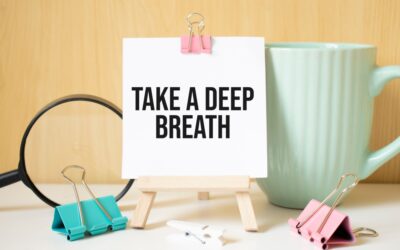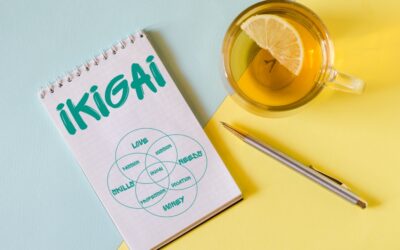The other day I was trying to learn a new software and my limited tech skills are once again putting a wrench in the process. Or at the very least, putting old rusty bolts in a new machine. If you know you know. I decided it would be so much easier to “phone a friend” who told me exactly where the little function icons were located, how they work, and when to use each one. Difficulty and frustration temporarily averted.
I love having people in my life who can occasionally just give me the answer. Tell me what to do and I will do it. Time spent figuring this thing out, in my opinion, is time wasted.
That is…… until the next time I opened the new software program for my next project. The new project, required similar but slightly different combinations of little buttons, and I, once again, felt like I was lost in a foreign country, unable to read the street signs to find my way home.
And this has me thinking, maybe the struggle of figuring things out is necessary.
Enter the mere ownership effect. The mere ownership effect is a belief in psychological circles that we are more likely to view something in high esteem if we own it.
There is no greater example of this than parents with their children and owners with their pets.
Case and point…..The other day I was walking my little dog Chico at prime-dog-walk-time when (it appeared) every dog in the neighborhood was crisscrossing their way around our little circle without missing a potential tree trunk, leaf, or sliver of grass requiring further “investigation”. And it was in this moment, I hesitantly admit, I realized I don’t really love most dogs. Most are too big and their hair is too long. But even the little, short haired variations, are a little too “yappy”. My little 10 pound, pug-pekingese mix is on an entirely different level. He is the best-looking, most well-mannered, loveable dog in town. In my humble opinion.
This is a prime example of the mere ownership effect at work. I love Chico for many reasons. But the reason that anchors all the other reasons down is simple. Because he belongs to me.
But the mere ownership effect doesn’t just apply to things. It also applied to ideas, beliefs, values, political views and yes, neurologic rehabilitation.
You see, the mere ownership effect postulates that when you own something, you will find it more attractive, of greater value, and be of greater benefit to you. Some believe this occurs because when we feel like something belongs to us we don’t want to lose it. This can be true with ideas, values, and yes, exercise selection.
Moreover, some evidence might suggest that when we feel a connection to something, we are more likely to remember it. It is as if we feel an obligation to remember it (because it becomes a part of us) and thus we don’t want to “lose it”.
Here is the truth, I am not a “born leader”. I can point out many circumstances where I prefer other people be in charge and just tell me what to do. It is less thinking and I don’t have to “own the result”.
I can just show up and do what I am told.
But here in lies the two-fold problem.
First, if you do not voluntarily select the goal and the necessary habits necessary to accomplish said goal, it is less likely that you will find the goal and the habits attractive, valuable, and beneficial to you.
Second, when we don’t own the “process”, we can’t fully “own” the result. In other words, if we don’t feel like it was because of our own decision-making that lead to the desired outcome, It is much harder to “own” the sense of satisfaction in the results. If the “result” doesn’t belong to you (because you outsourced the cognitive burden of solving the hard problems), you are less likely to accept the identity of the person who accomplished the hard thing.
In other words, when you outsource all of the thinking necessary to set up an exercise routine, you will become dependent on others to always give you the next steps with the next big goal. Or when circumstances change (ie: hospitalization, loss of a caregiver, a new mobility issue…etc.) you will not have any connection with the type of person who could solve the new challenge.
I have recently succombed to the idea that learning photoshop will require me to learn all the little buttons and experience my mouse and cursor taking on a life of their own. Oftentimes, resulting an a series of “undos” and “create new file”. Needless to say, failure rate is high and production rate is extremely low. But with each new project I fail less. But more importantly, I believe I am someone who can learn new things. I believe that I am someone that when face with “tech challenges” I don’t need to immediately hire someone to do the job. I own the process. But more importantly, I can own the identity of the person who create the last thumbnail.
What are you currently owning?
Do you own your goals? Do you own your exercise routine?
What have your “outsourced”? Are your goals because someone else said they were “good” goals? Is someone else (a therapist or family member) telling you exactly what to do at each and every step?
If it is the former, do you find the goals and the routine are of great value, attractiveness and benefit to you?
If the latter, (outsourced goals), how often do you question whether or not the exercise is “right for you”? How often do you doubt your goals? How often do you think about the goal with lack of enthusiasm?
Soothing Stress With Sound Therapy
Seventy-six percent of U.S. adults reported that they experienced at least one symptom of stress in the last month such as headaches, fatigue, nervousness, anxiety, depression, and sadness. It’s easy to see why. Americans are among the most stressed out people in the...
Silent Storms: The Atypical Form of Depression You Need to Know More About
Approximately 280 million people suffer from depression on a global scale. The figure is harrowing but doesn’t give you the complete picture because depression isn’t always visible. Sometimes, people experience symptoms related to it but can’t pinpoint what they’re...
Understanding The Link Between L-Theanine and Stress
Introduction Today, stress is one of the leading causes of physical challenges. Yes, what used to be a feeling of tension or a state of mind when faced with a difficult situation can impact you physically and even how you react and handle things emotionally and...
Progressive Muscle Relaxation: Guide to Optimal Health
In today's fast-paced and stress-ridden world, finding effective methods to promote relaxation and restore balance in our lives has become paramount. One technique that has gained considerable recognition in recent years is Progressive Muscle Relaxation (PMR). PMR has...
Mindfulness: Health Benefits and Getting Started
Understanding Mindfulness, Its Benefits, and How To Get Started Mindfulness. We hear this word so often that it’s easy to dismiss it as the latest New Age fad. But before dispensing with the idea altogether, consider that mindfulness-based cognitive therapy has been...
What is breathwork? Beginners guide to therapeutic meditation
What Is Breathwork? A Beginner's Guide To Therapeutic Meditation Breathing is automatic, unconscious, and involuntary. You do it without thinking, both when you’re awake and asleep. It’s what keeps you alive and functioning. But you can also control your breathing if...
Can Flow State Improve Healthspan?
Have you ever been so engrossed in a task that time seemed to stand still? Or maybe you've experienced a surge of creativity and productivity that left you feeling invincible. If so, you may have entered the elusive state of flow. This mental state, also known as...
How Old Is Too Old?
You are never too old to set another goal or to dream a new dream. -C.S. Lewis How old is “too old”? I am often curious about this question. Especially when I hear statements like “I am too old to change”, “this is the way I have always been”, “maybe when I was...
What is your Ikigai?
Not everyone wants to live a long life. But what about a happy and healthy life? If this is you, sit down and pull up a chair. Ikigai might be the answer.
Stroke Rehabilitation: Overcoming Mental Barriers
Dealing with the aftermatch of a stroke can lead to a whirlwind of emotions including confusion, hopelessness, disappointment, and even despair. If you are in the process of recovery, these emotions are completely normal. Here I break down some of the most common...












Dear Tara, I cannot thank you enough for your dedication to put out such high quality content each week. I truly look forward each week to your posts. They challenge me each time to evaluate myself on so many levels and teach me new ways of addressing my life.
May you continue to receive wisdom, insight and strength to shine forth for all of us!!
Hi Kika! Thank you for reading and for letting me know how these articles are helping you! Thank you for your kind words and the blessing! Keep going! You got this!